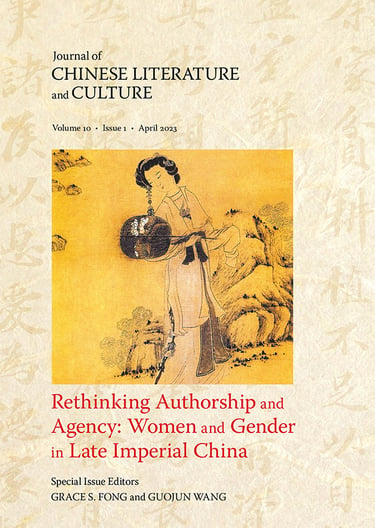
New Publications
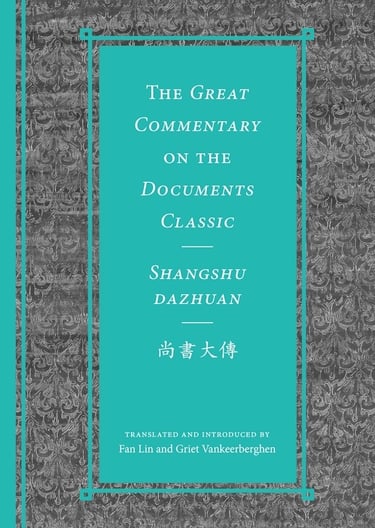

Translated and edited by Fan Lin and Griet Vankeerberghen
University of Washington Press, February 2025
Abstract: An early commentary on one of the Chinese Five Classics
The Documents classic (Shangshu) was central to the political life of imperial China. This owed much to the lively commentarial activity surrounding the text in the first two centuries BCE. The Great Commentary serves as a lens on this commentarial work and reveals how the Documents classic was used to provide answers to pressing societal questions of the time.
In this first English translation of the Great Commentary, Fan Lin and Griet Vankeerberghen engage with the historical realities that produced the work. They explore the complex relationship between the Documents classic and its commentarial traditions at a time when neither classic nor commentary had acquired fixed form. They view Master Fu (260?–161? BCE), the Han court academician to whom the Great Commentary is traditionally ascribed, not as the text's author but rather as the figure who lent his authority to subsequent generations of Documents scholars. Lin and Vankeerberghen also trace how late imperial scholars reconstructed the text largely from fragments in collectanea. With facing pages of Chinese and English text, this volume provides a comprehensive introduction and detailed annotation that reveal the work's relevance to law, prognostication, and politics, along with its value as an important source for the study of the classical tradition and of early Chinese history.
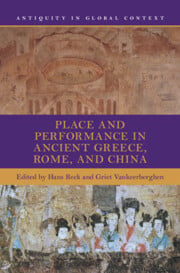

Edited by Hans Beck and Griet Vankeerberghen
Cambridge University Press, 2024
Abstract: This book examines the construction of space and place in early China and the ancient Mediterranean through the lens of performances conducted in specific locations. It highlights conceptions of place and performance, seeing both as crucial to the production of cultural meaning and communal cohesion, and as heavily dependent on the prevailing political culture. Whether urban or rural, global or local, central or fringe, public or private, real or imagined, theatrical or ritual, the places and performances highlighted serve to show both commonalities and differences between the ancient Mediterranean and early China. The range of places of comparison is also very diverse, including roads, gardens, neighbourhoods, hydraulic infrastructures, funerary performance, spectacles at court, and the everyday display of authority through clothing and fashion.
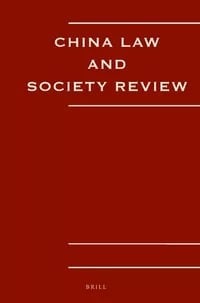

Juan Wang (McGill, Political Science)
China Law and Society Review, 2024
Abstract: In mid-1966, the police in China reportedly assisted mass killings of “class enemies” or showed indifference to such events when they were enacted by others. Why did the police, as a coercive apparatus of the communist regime, not execute these class enemies, as they had done between 1949 and 1957 in the movements to suppress and eliminate counterrevolutionaries? And why did the police, as a state organ for maintaining public order, not take action to prevent or halt these killings? Drawing primarily on original archival documents, this article studies the evolving role of the police and its shifting priorities between 1949 and 1966. It shows that, after an initial expansion followed by a partial contraction, official police responsibilities transitioned from enforcing selective punishment and maintaining public order to assisting or overlooking revolutionary violence.
Slaves of the Emperor:
Service, Privilege, and Status in the Qing Eight Banners
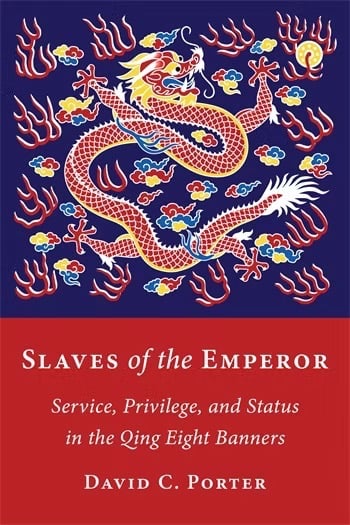

David Porter (McGill, History)
Columbia University Press, December 2023
Abstract: China’s last imperial dynasty governed a vast and culturally diverse territory, encompassing a wide range of local political systems and regional elites. But the Qing empire was built and held together by a single imperial elite: the more than two million members of the hereditary Eight Banner system who were at the core of both the military and the bureaucracy. The banner population was multiethnic, linked by shared membership in a clearly demarcated status group defined in law and administrative practice. Banner people were bound to the court by an exchange of loyal service for institutionalized privilege, a relationship symbolically conceptualized as one of slave to master.
Slaves of the Emperor explores the Qing approach to one of the fundamental challenges of early modern state-building: how to develop an effective bureaucracy with increasing administrative capacity to govern a growing polity while retaining the loyalty of the ruling family’s most important supporters. David C. Porter traces how the banner system created a service elite through its processes of incorporating new members, its employment of bannermen as technical specialists, its imposition of service obligations on women as well as men, and its response to fiscal and ideological challenges. Placing Qing practices in comparative perspective, he uncovers crucial parallels to similar institutions in Tokugawa Japan, imperial Russia, and the Ottoman Empire. Slaves of the Emperor provides a new framework for understanding the structure and function of elites both in China and across Eurasia in the early modern period.
Robin D. S. Yates & Danni Cai
NAN NÜ Vol. 25 (2), 213-343, October 2023
Abstract: This bibliography is the third iteration of a bibliography of women and gender in China studies. The first was published in book form by Brill in 2009 and the second was published in this journal, Nan Nü: Men, Women and Gender in China, in 2018. It has been compiled in celebration of the twenty-fifth anniversary of the journal. It contains approximately 1200 citations of works published primarily since 2018 (with some items missed in the previous bibliographies) in the form of books, chapters in books, or journal articles, with some items published only in online journals. The articles have been culled from approximately 200 journals. Most of the items were published in English in multiple disciplines. The index lists all the authors in 18 categories, some of whom appear in more than one category.
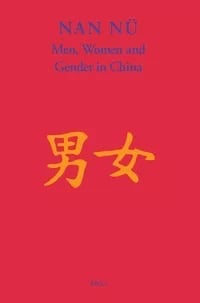

Rethinking Authorship and Agency: Women and Gender in Late Imperial China
Grace S. Fong & Guojun Wang
Journal of Chinese Literature and Culture Vol. 10 (1), April 2023
